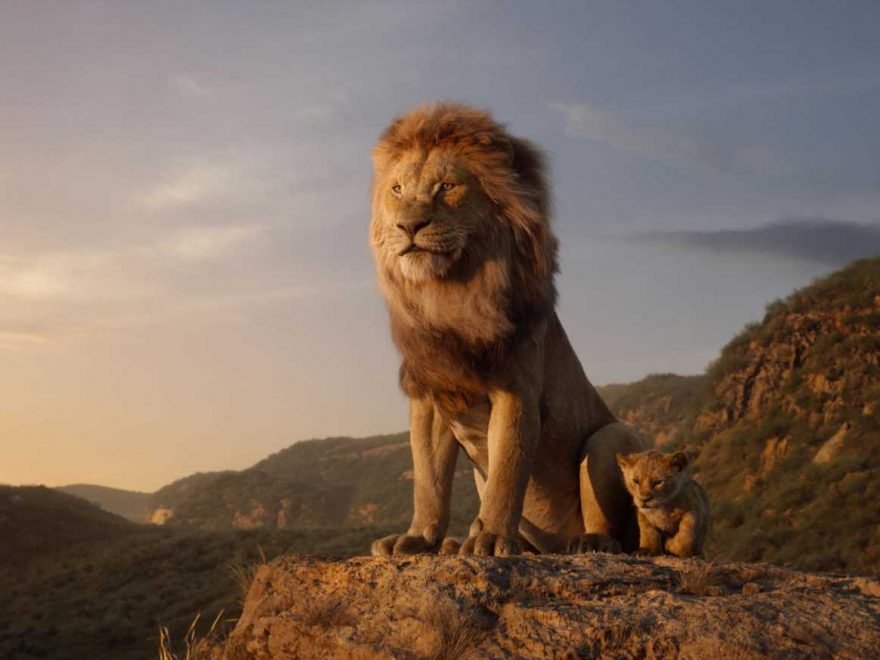For Hans Zimmer, “The Lion King” has always been “about giving to Africa,” not “taking from Africa.” And 25 years later, returning to his Oscar-winning score, he had a greater sense of purpose. The world had changed, and so had Zimmer, who leaned into the primacy of nature and environmental themes in Jon Favreau’s innovative remake comprised of stunning, life-like, CG animation. “The Circle of Life” had now come to life in all its beautiful African glory, like a narrative nature doc, and Zimmer tuned in musically with that vibe.
“Jon is a smart man,” Zimmer said. “He knew I had some sense of ownership, but at the same time, what is there to talk about? I thought I knew what they were doing. He showed me the opening and it was way beyond my imagination. It looks like reality, but there’s great artistry involved…very emotional.”
And it was that emotional intensity that led Zimmer down a new path. He invaded Coachella with an orchestra and a choir and performed a “Lion King” suite live, which was a revelation. The musicians really got into performing the soundtrack of their lives, and the audience reaction was electric. He wanted to bring the excitement of that live performance to the recording session in LA.
“The Lion King” composer Hans Zimmer.
ALBERTO E. RODRIGUEZ
“So I said to Jon, why don’t we do it like this?” added Zimmer. “Why don’t we get all the greatest players, get my band, get the greatest players in the world, make a new orchestra here in Los Angeles, rehearse them for two days, and then really make it as if it was a concept?”
The African voice was already present in the original “Lion King” with the help of singer/composer Lebo M, who provided the unforgettable, opening cry from “The Circle of Life,” and who was integral once again in updating the ethnicity of the new score. But it was important to Zimmer to expand the score’s diversity of color and gender to reflect the world today. In addition to using his crack band of LA session musicians, Zimmer recruited The Re-Collective Orchestra, an all-black ensemble founded by Stephanie Matthews and Matt Jones (“Black Panther”), along with two distinctly ethnic choirs. The result was unity through diversity.
“There was such familiarity with the music,” Zimmer said. “It was all about the performance. They knew what every note meant, so I could harness that. At the same time, long before anybody wanted to go and build walls, I thought music was about building these bridges to Africa. I stuck close to the orchestration…we worked on the old songs to make them more of what I always hoped they would be.
“The Lion King”
Disney
“A German word, verschlimmbesserung, has no English translation. It means to mess things up through improvement. And I worked very hard at not doing that. I tried to be true to the spirit of everything. At the same time, we had a bigger orchestra and better percussionists. The old percussion was me playing synthesizers. It was less about me. But I told them: ‘I know you have to copy one of my fills. It might not be very good, but it’s sort of iconic.’”
Yet underscoring Zimmer’s approach was the urgency of protecting the environment. “My journey for the last few years has been on my work with David Attenborough on the BBC nature documentaries [‘One Planet, Seven Worlds,’ ‘Planet Earth II,’ and ‘Blue Planet II’], so it was interesting to see that the story could take on a completely different meaning because the context of the world has changed.”
But, for Zimmer, what remains autobiographically constant about “The Lion King” is confronting the death of his father through the murder of King Mufasa (James Earl Jones), the father of Simba (Donald Glover) in the story. Zimmer was just a child when he lost his father, and he originally wrote a requiem 25 years ago for the score. In the remake, he got to weave that requiem in new scenes, especially during the amazing journey that a piece of Simba’s mane makes back to spiritual leader Rafiki (John Kani).
“We storytellers are necessary,” Zimmer said. “It’s our humanity, our anthropology, and the music plays a part of that. That is what Jon is very good at. We’re not teaching you a lesson — we’re opening a door for you to have an experience.”
Source: Read Full Article



